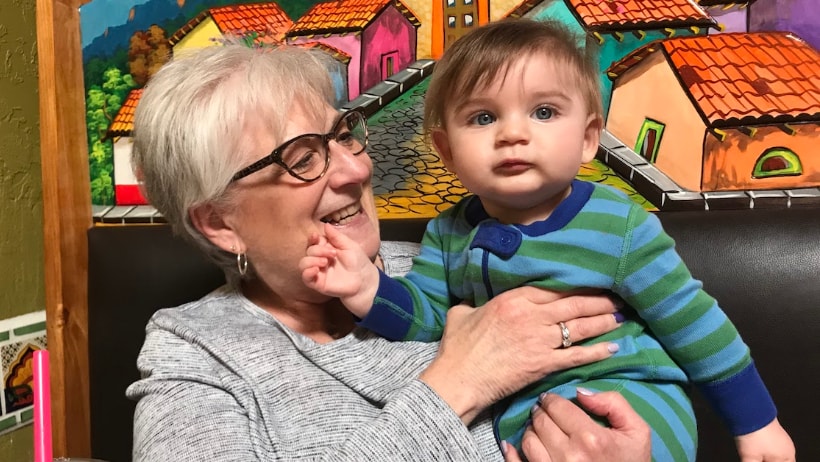For me, all of my “Sinai moments” are tied in some way to family. If you’ve never considered your own Sinai moments before, the idea is fairly self-explanatory. These are events in your life which carry a certain power or splendor, akin to the feeling Moshe and the Israelites might have had upon receiving the Torah at Mount Sinai. The Torah describes the scene as majestic, with thunder and lightning and grand theatrics. Clearly this was a moment that changed an entire people and connected them to one another and to future generations in a way they were not connected before.

We use the term now with some hyperbole, but nevertheless there are moments in our lives that affect us in monumental ways. My Sinai moments include my rabbinic ordination, my wedding day, and the days my children were born. Often these moments are joyous and uplifting, but they are undeniably powerful and life-changing. And for me, these moments were in some way, shape, or form tied back to my connection with my family, specifically those who came before me and those who might come after.
Parshat Vaetchanan, this week’s Torah portion, continues with the retelling of the laws here again in the book of D’varim. We’re also reminded of God denying Moshe’s entry into the Land of Israel. The Torah then reiterates that our mitzvot are the building blocks on which our society is formed. Finally, Moshe establishes three cities of refuge, and we receive the most well-known instruction in the Torah, the Shema.
Within the commandments about passing on our great tradition, God commands the following in chapter 4, verse 9:
And make them known to your children and to your children’s children: The day you stood before the Lord your God at Horeb . . .
The importance of passing on our tradition from generation to generation repeats throughout the Torah, but in this instance, the Torah includes grandparents. The Babylonian Talmud picks up on this notion in tractate Berachot, page 21b:
When a child is taught Torah by a grandparent, it is as if that child received it at Sinai.
Now you understand why our momentous, awe-inspiring occasions – the ones we call Sinai moments – often center on family. A Sinai moment by definition is one generation to another sharing tradition and wisdom. I take great joy in hearing my mom share with my children the stories from the Torah that she shared with me when I was a child because it tells me the preservation of our family culture and Jewish heritage are secured. Parshat Vaetchanan simply articulates one of the Torah’s primary imperatives, which is to educate our children and future generations on the beauty of our heritage.



